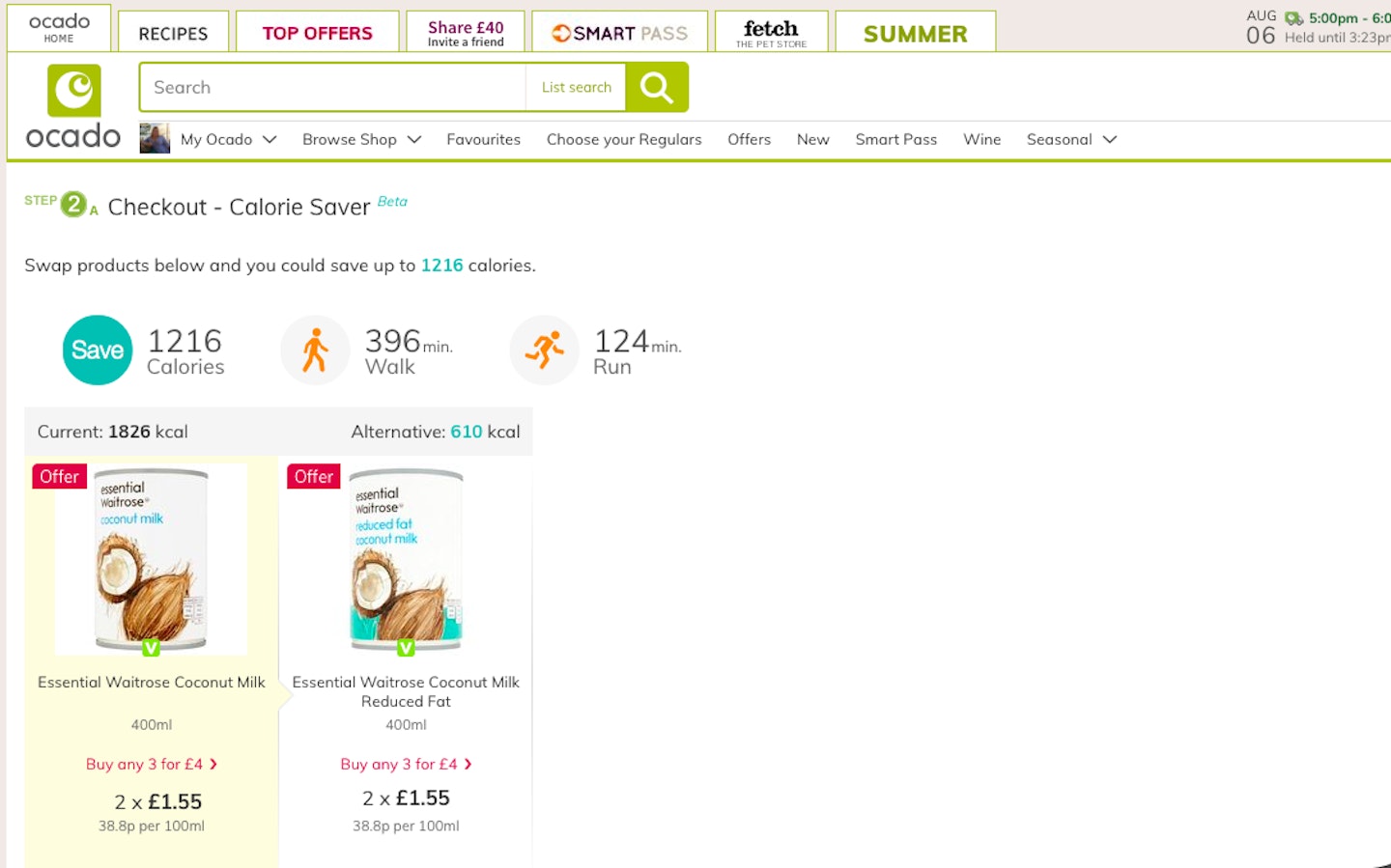TW: this article discusses disordered eating, calorie content of foods & bulimia.
As someone who spent their teens and early twenties in a constant battle of starvation and binging, I've spent a lot of time in supermarkets. I've filled a basket with brightly coloured sugary snacks and crammed them into my face secretly in my bedroom. I've also wandered from aisle to aisle, lightheaded and queasy with hunger, trying to work out whether there were fewer calories in asparagus or courgette.
When you're obsessed with food, it takes over your entire life. You wake up in the middle of the night to Google whether salt has calories and you try not to swallow any toothpaste because nothing that delicious could be calorie free.
Food shopping is the ultimate battle. When food is the enemy, the supermarket is the scariest, most stressful place in the world.
Which is why I was worried today when I was doing my weekly food shop, when Ocado decided to tell me, as I was trying to check out, that by swapping my full-fat coconut milk for reduced fat coconut, I could save a specific number of calories.

Not only did it tell me how many calories I could be 'saving' by swapping from one tin to another, it also told me in specific terms how long I'd have to walk or run to burn the coconut milk off. Something which, during periods of disordered eating, I'd already have known before I'd even considered putting it in my mouth.
Whether you've had a formally diagnosed eating disorder, or just had a complicated relationship with food, you don't need to have your calorie choices shoved in your face. The nutritional values of these products would take a matter of seconds to discover.
The calorie swap reminder is opt out, rather than opt in. So if you, like me, were thrown into a massive tail spin by being told by your food provider to 'save' calories, you'd have to change your settings in order to avoid it.
I told Ocado that with a history of disordered eating, I found this genuinely triggering. Their reply? 'We can fully appreciate where you are coming from and if you would like to turn this option off you just need to go to My Ocado.'
I will be turning the function off. Then I'll be shopping elsewhere. Of course my boycott won't make any difference to Ocado, and I doubt that they'll notice. But I don't want to give my money to a company who don't give a damn about the agony that disordered eating can cause you.
Healthy eating is important, but I refuse to believe that anyone old enough to be shopping at Ocado is unaware that there are fewer calories in reduced fat coconut milk than there are in full fat coconut milk. I also don't think that it's my supermarket's responsibility to lecture me about what I'm eating.
If Ocado is determined to try and educate customers about their eating habits, they should at least do it in a responsible way, realise that this tool could cause a lot of people a lot of pain, and make it opt-in rather than opt-out.
It's been years since I cried in a supermarket because all of the numbers on the packets scared me, and because I was so painfully hungry and yet so afraid to eat. But today, when Ocado issued an automated lecture about calories, for a second I was right back there.
A spokesperson for Beat, the eating disorder charity, said: 'Eating disorders are serious mental illnesses with complex causes, so use of calories counting apps or features would not be the sole and direct reason for someone developing one. However, many people with eating disorders count calories or track weight loss to the point of obsession, and calories counting apps apps can facilitate or exacerbate such behaviours and make recovery harder.
'There needs to be greater awareness around the risks that calories counting apps can pose to people with or vulnerable to eating disorders.'
